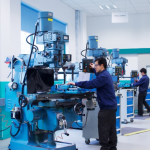Table of contents
What is LCA?
LCA is an environmental management technique that enables the identification and optimization of environmental impacts. The assessment covers all stages of a product’s life — raw material extraction, manufacturing, transport, use, and end-of-life. The results of an LCA form the basis for developing Environmental Product Declarations (EPDs) and other sustainability disclosures.
Objectives of Life Cycle Assessment
- Identify and minimize environmental impacts, including the carbon footprint.
- Optimize product design and production processes for sustainability.
- Compare alternative materials, technologies, or products.
- Comply with certification (e.g. ISO, EPD) and regulatory requirements (CSRD, ESRS).
- Support the transition toward a circular economy (CE).
The LCA process
- Goal and scope definition – defines the purpose, system boundaries, functional unit, and assumptions of the study.
- Life Cycle Inventory (LCI) – data collection on energy, material consumption, emissions, and waste.
- Life Cycle Impact Assessment (LCIA) – classification and characterization of environmental impacts (e.g. climate change, eutrophication, acidification).
- Interpretation – identification of hotspots and development of improvement recommendations.
Environmental impact categories
- Climate change and greenhouse gas emissions,
- Use of natural resources,
- Air, water, and soil pollution,
- Biodiversity loss and eutrophication,
- Acidification,
- Water consumption,
- Quantity and type of waste.
International standards and methodologies
LCA is standardized globally through the following documents:
- ISO 14040 – Life Cycle Assessment – Principles and framework,
- ISO 14044 – Life Cycle Assessment – Requirements and guidelines,
- ISO 14025 – Environmental labels and declarations – Type III environmental declarations,
- ISO 14067 – Carbon footprint of products,
- EN 15804 – Environmental product declarations in construction,
- GHG Protocol – Product Life Cycle Accounting Standard – alignment with climate policies.
These standards ensure transparency, comparability, and credibility of results in certifications and stakeholder communication.
Data sources and modeling
LCA relies on multiple data sources, including:
- Manufacturer data (e.g. EPDs),
- External databases such as Ecoinvent,
- Governmental data (e.g. Eurostat, EEA),
- Scientific literature,
- Industry- and organization-specific datasets.
Common models used in LCA include emission models, energy models, and material balance models — enabling realistic simulations of technological processes and environmental interactions.
The role of LCA in ESG and EU policy
LCA supports the implementation of ESG strategies, the EU Green Deal, and the EU Taxonomy by enabling compliance with climate regulations and sustainability criteria. LCA results contribute to calculating the Product Environmental Footprint (PEF), which will form part of the Digital Product Passport — mandatory for many industries starting in 2027.
Moreover, robust LCA analyses can support eligibility for funding under programs such as the European Funds for a Modern Economy (FENG).
Applications of LCA across industries
- Construction – supporting LEED and BREEAM certification,
- Manufacturing – process optimization and emission reduction,
- Energy – fuel efficiency and energy mix assessment,
- Transport – lifecycle analysis of vehicles and infrastructure,
- Agriculture – evaluation of agricultural practices and land use,
- FMCG – assessment of packaging and consumer products.
Benefits of using LCA
- Comprehensive assessment of environmental impact,
- Identification of critical areas and optimization opportunities,
- Alignment with ESG and EU regulatory requirements,
- Facilitation of certifications and public tenders,
- Strengthened market position and corporate reputation,
- Support for product innovation and eco-design.
The role of GCB as an LCA expert
As an independent and experienced sustainability assessment body, GCB ensures methodological alignment with ISO standards, reliability of data, and preparation of EPD documentation. GCB performs independent verification of LCA results and supports clients in achieving transparency, reducing environmental impacts, and strengthening their sustainability performance — while maintaining full impartiality and avoiding consulting activities.





























